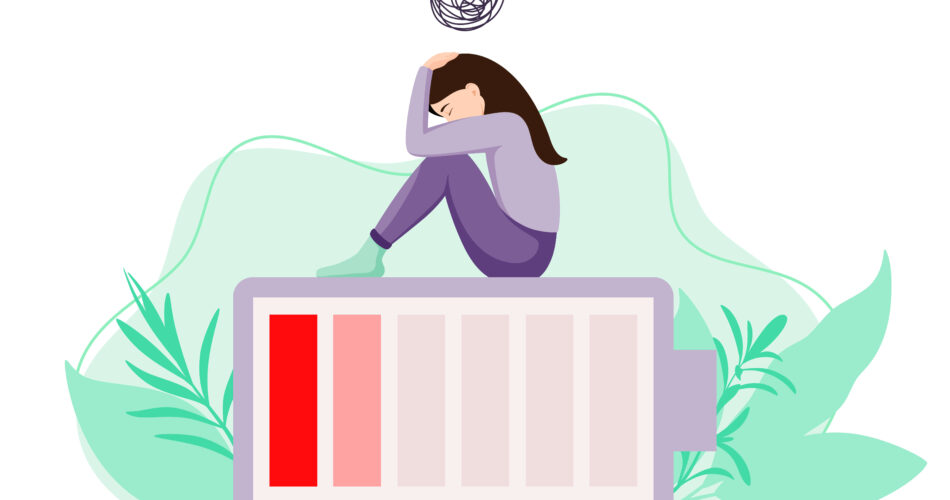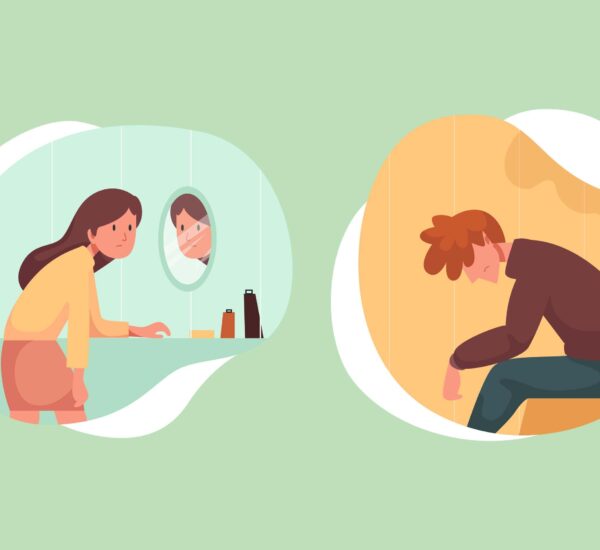There can be times where you can’t explain the sudden shifts in mood and loss of drive for doing things you love. Furthermore, there can also be some difficulty in becoming truly happy despite what you do. These scenarios are affirmative signs that you have mild depression. This mental health disorder can be a minor setback to patients, but they must still address it to prevent its progression. That’s because mild depression can also be an initial sign of severe depression.
In this blog, we’ll help you analyze your current condition and understand that a threat of mild depression symptoms are serious. Thus, the need for immediate intervention no matter how acute the condition is. Let’s begin and take a step towards mental healing.
Understanding Mild Depression

When a person is suffering from mild depression, their experience can be almost the same with severe depression. However, the difference is, mild depression can be managed easily by most people. Although, as mentioned, occurrence of this kind of depression should still be monitored as it can still progress to a more complicated mood disorder.
Mild depression, often termed as dysthymia, is a low-grade yet common mental health condition. It is characterized by persistent feelings of sadness and a lack of interest in daily activities. Unlike severe depression, the symptoms of mild depression are less intense but can still impact daily life. In some cases, their constant mood changes and sadness has become a new normal for them, which they don’t realize is a symptom of mild depression already.
If you think you do have this low-grade depressive disorder, it is important to seek professional help promptly. That way, they can analyze your condition better and provide a more accurate diagnosis for the treatment plan.
Defining Mild Depression Symptoms
Individuals with this condition may experience persistent depressive symptoms such as consistently low mood, lack of interest in daily activities, and feelings of hopelessness. Other symptoms also include changes in appetite or sleep patterns, low energy levels, and difficulty concentrating.
While these symptoms may not be as severe as major depression, they can still impact daily functioning and overall well-being. That’s because these warning signs are sudden changes that the patients don’t normally do. In short, it can interfere with their routine and daily life.
It’s essential to seek professional guidance if these symptoms persist to alleviate the changes and manage the condition better.
How Do Doctors Diagnose A Patient With Mild Depression

If you have decided to visit a doctor for a consultation, you might be wondering how they diagnose patients accurately. That can happen through the tests and procedures that the doctor may require to the patients. Depression test is an assessment tool that psychiatrists give to the patients to fully assess how extreme the type of depression that the patient has.
This test may involve personal questions, emotional questions, and others that may give light to what you are experiencing. Once the test results are available, the doctor will provide a final assessment such as checking the medical history, current medications, and the overall mental health. Additionally, doctors may rule out other medical conditions that could be causing similar symptoms before confirming a diagnosis of mild depression.
In short, a thorough evaluation will occur to fully diagnose patients with mild depression, and other types of depression. This method is done so that an accurate diagnosis can happen, and to identify the proper treatment option, tailored to the patient’s health.
Common Treatments for Mild Depression

There are several ways on how to manage mild depression. Although, not all patients can receive the same treatment plan from their doctor. That’s because there are other factors that may influence the method and medication that the patient will use. For instance, if a patient is taking a maintenance medication for a specific chronic illness, there might be side effects if taken at the same time with the antidepressants. In this case, the doctor will provide a tailored treatment plan per patient.
Aside from using an antidepressant medication, patients may also receive other medications such as SSRI or Selective Serotonin Reuptake Inhibitors. This medication is prescribed commonly for patients with moderate to major types of depression. It is more effective than other types of antidepressants, which can provide lesser side effects.
Meanwhile, another possible health treatment for mild depression is talk therapy (i.e. psychotherapy, cognitive behavioral therapy, etc.). Like other forms of mental health conditions, talk therapy is an effective treatment method to alleviate and manage the condition better. This session can help patients to cope and manage their condition through this emotional support therapy.
Beginner’s Guide to Managing Mild Depression
To embark on managing mild depression effectively, you need a supportive network comprising mental health professionals, friends, and family. At the same time, have a main goal that you’ll want to achieve. Thus, allowing you to better manage mild depression.
Here’s a simple guide that can help you achieve that end goal. By taking note of these factors, you can successfully alleviate the burdens that this mental health condition can bring. At the same time, be able to move past the triggers that may have set the development of mild depression.
Let’s discuss each of them below!
Lifestyle and Behavior Changes to Improve Mild Depression
Mild depression can often be managed and improved through lifestyle changes. Making positive changes in your everyday life, such as in daily routine and habits, can have a significant impact. It can help better manage depressed mood and overall well-being.
For instance, changing one’s outlook in life can help, especially if there are stressful life events occurring. One helpful way to get through such challenges is to practice meditation and breathing exercises. Doing so allows individuals to be more kind about their own struggles, and to not succumb to that negative situation.
Remember that a bad day doesn’t equate to a bad life, which is why it’s best to practice the art of meditation. Taking a pause will help you better analyze what happened, and to look for better moments in that day.
Practice Healthy Diet and Exercise

Meanwhile, diet and exercise are crucial components of managing mild depression. Research has shown that a healthy diet and regular physical activity can have positive effects on mood and mental well-being.
A balanced diet, rich in fruits, vegetables, whole grains, and lean proteins, provides essential nutrients that support brain function. Some studies suggest that a plant-based diet, rich in antioxidants, may be particularly beneficial for individuals with depression. Avoiding processed foods, high in fat and sugar, can help regulate mood and energy levels.
Engaging in regular exercise releases endorphins, known as the “feel-good” hormones, which can boost mood and reduce symptoms of depression. Exercise also promotes better sleep, reduces stress and anxiety, and improves overall cognitive function. Incorporating activities such as walking, jogging, yoga, or dancing into your routine can help alleviate symptoms of mild depression. It’s important to find activities that you enjoy and that fit your fitness level and preferences.
The Power of a Good Sleep Schedule

Establishing a regular sleep schedule can have a significant impact on managing mild depression. Sleep plays a vital role in maintaining overall mental health and well-being.
Maintaining a consistent sleep routine helps regulate the body’s internal clock, improving sleep quality and promoting better mood and cognitive function. Aim to go to bed and wake up at the same time each day, even on weekends. Creating a relaxing bedtime routine can also help prepare your mind and body for sleep. Avoid stimulating activities, such as using electronic devices or consuming caffeine, close to bedtime. Creating a comfortable sleep environment, with a cool and dark room, can further enhance sleep quality.
If you’re experiencing difficulty falling asleep or staying asleep, it may be helpful to practice relaxation techniques, such as deep breathing exercises or progressive muscle relaxation. If sleep issues persist, it’s important to consult with a healthcare professional who can provide guidance and support.
Building a Support System
Building a strong support system is crucial in managing mild depression. Social connections and emotional support play a significant role in improving mood and overall mental well-being.
Consider joining a support group for individuals experiencing similar challenges. Support groups provide a safe space to share experiences, gain insight, and receive encouragement from others who understand your struggles. Connecting with people who have similar experiences can provide a sense of belonging and validation.
In addition to support groups, reaching out to family and friends who are understanding and supportive can provide a valuable source of emotional support. Having people you can trust and confide in can help alleviate feelings of isolation and loneliness often associated with depression. Openly discussing your feelings and experiences with trusted individuals can help lighten the emotional burden and provide a fresh perspective.
If you have a family history of depression, it may be beneficial to engage in open and honest conversations with your loved ones about your experiences. Sharing information about your mental health journey can help foster understanding and empathy within your family unit.
Conclusion
Suffering from mental disorders like mild depression is a common struggle that can be effectively managed with the right approach. It can happen through recognizing the severity of symptoms present, and choosing to receive the needed mental health care and medical treatment. At the same time, being able to know when to seek help to prevent the long term effect of this mental disorder.
So, if you’ve noticed some alarming symptoms that may signify depression, it’s best to seek immediate consultation for an early diagnosis. Remember, your mental health is important, and seeking help is a sign of strength. You are not alone in this journey.
How Much Do You Know About Mild Depression?
Test your understanding based on what you just read.



